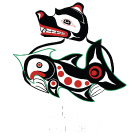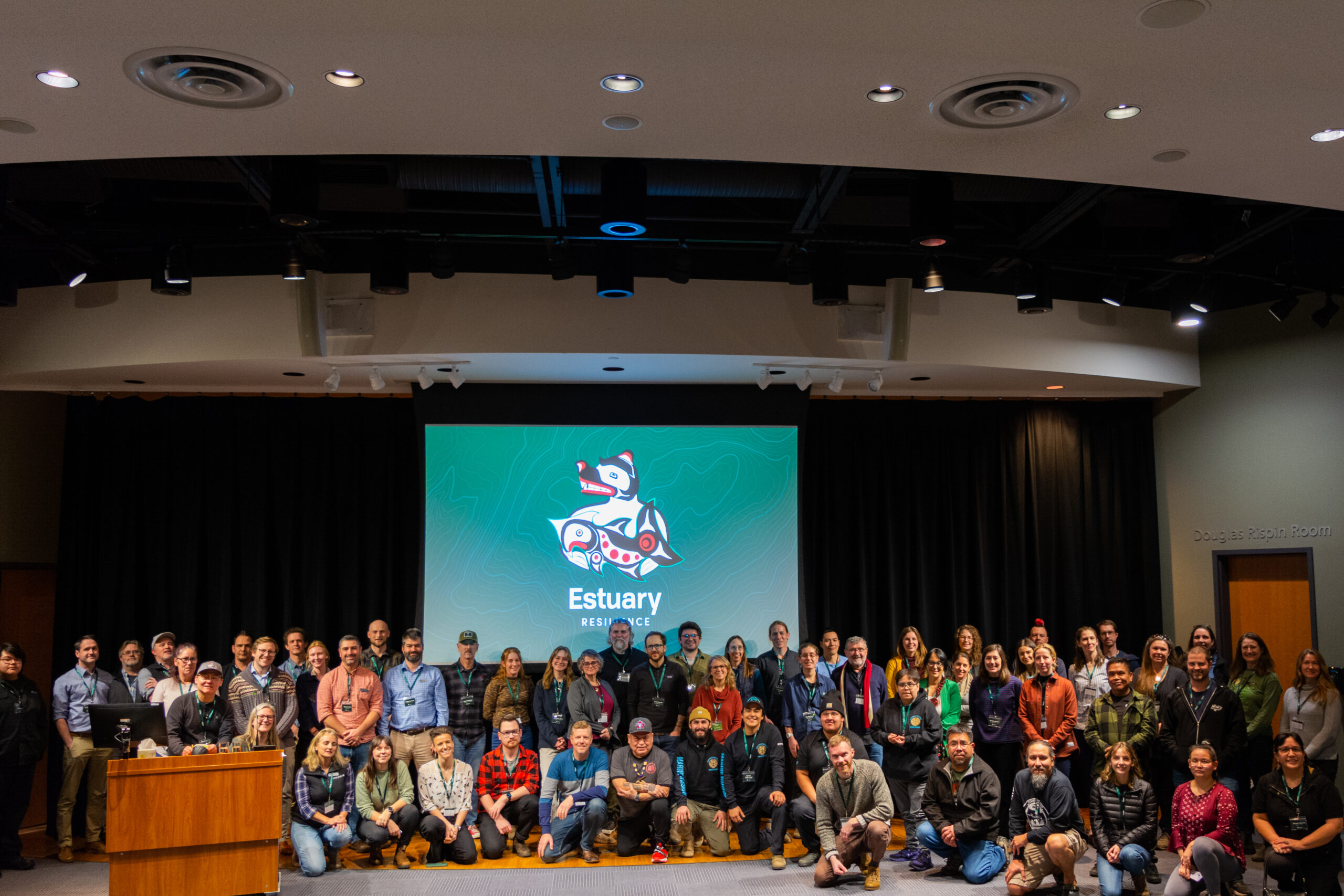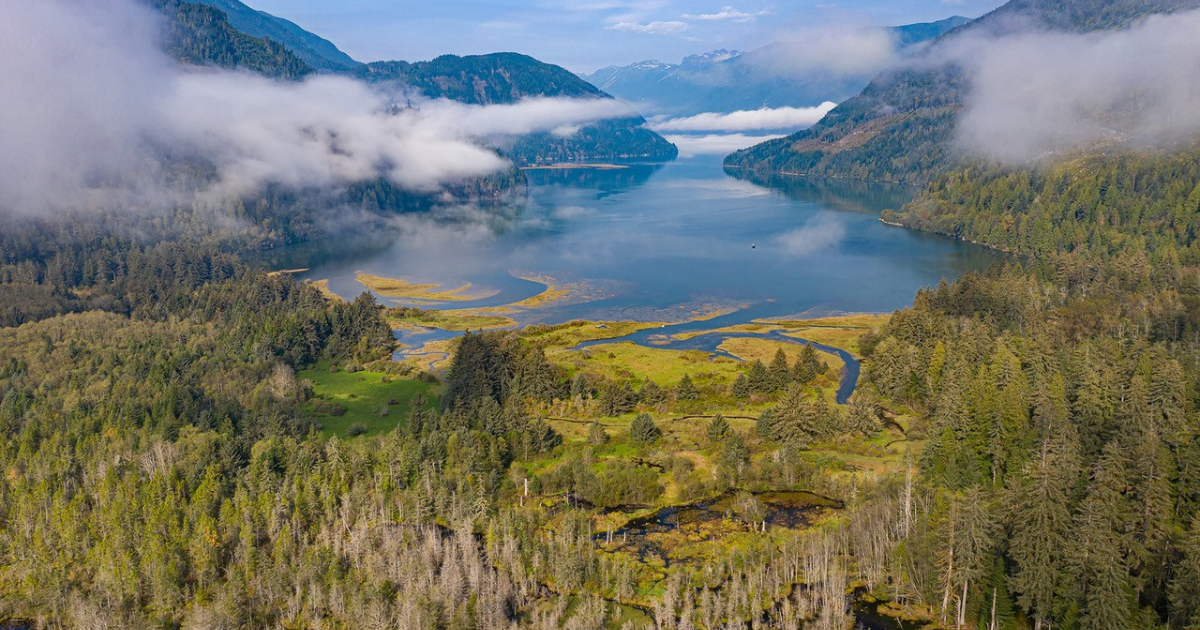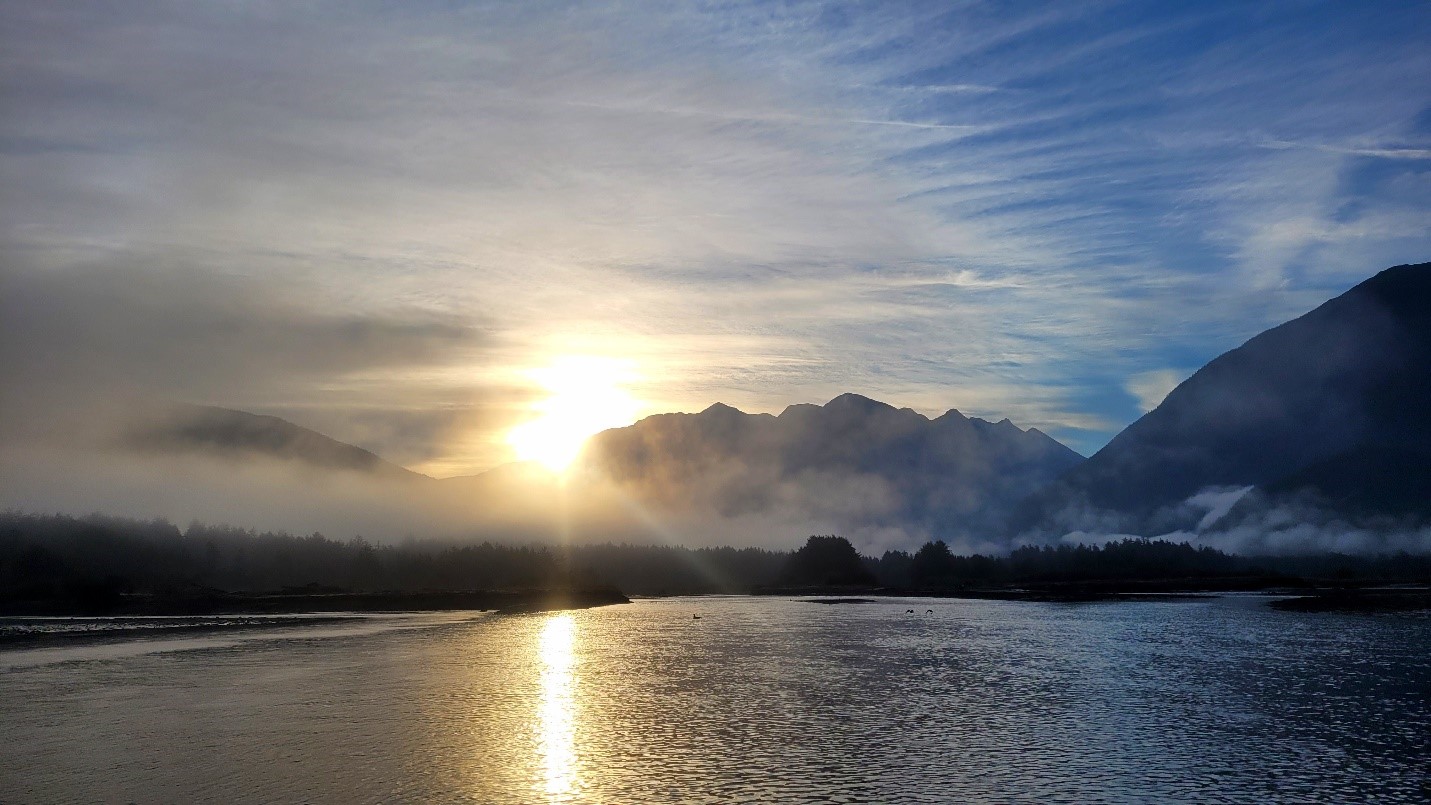Happy World Ocean Day! Today, The Nature Trust of British Columbia joins the global community in celebrating our oceans, which cover over 70% of our planet and are home to a remarkable diversity of life. In British Columbia, our oceans and estuaries are particularly special, providing critical habitats for salmon, migratory birds, and marine mammals. Estuaries, where freshwater rivers meet the salty sea, are among the most productive ecosystems on Earth, supporting both marine and terrestrial species.
This World Ocean Day’s theme is Catalyzing Action for Our Ocean & Climate, and aims to grow the movement to protect our planet through transformative collaboration. Along with over fifteen First Nations communities, environmental eNGOS, academic groups and provincial and federal governments, we’re working to build the resilience of B.C.’s estuaries and coastal ecosystems through the Enhancing Estuary Resilience project.
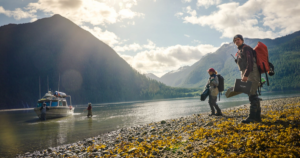
Muuyahi (Moyeha) River Estuary
Enhancing Estuary Resilience in B.C.
Estuaries and coastal wetlands in British Columbia comprise less than 3% of the coastline, yet they support over 80% of the province’s coastal fish and wildlife. Climate change impacts are expected to significantly impact estuary ecosystems, with threats such as rising sea-levels, ocean acidification, temperature and salinity changes, and more.
With so many threats impacting estuaries across British Columbia, it’s more important now than ever to understand how estuarine ecosystems are coping with climate change to inform future restoration and bolster estuaries’ resilience. With our project partners, we’ve established an estuary monitoring program across British Columbia encompassing fifteen sites using the Marsh Resilience to Sea-Level Rise (MARS) tool. Using this metric, we can determine an overall resilience score for each site, which illuminates the relative vulnerability and resilience to sea-level rise and climate change.
The Estuary Resilience project goes beyond just monitoring — our First Nations and West Coast Conservation Land Management partners have also delved into topics such as juvenile salmonids, water quality, and Indigenous food systems revitalization as integral components of this project. Together, we’re using the data we’ve gathered to inform transformative estuary restoration projects across the province.
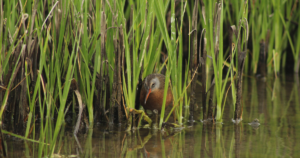
Virginia Rail at Cowichan Estuary
Restoring Estuaries for Salmon, Wildlife & Communities
“Hitlatlaisan’s nalax galgapotla xan’s sas’am t’suxllama, hitluk;wine, dtluwida mayudtl ami. (Let us fix our world and work together for our children, grandchildren, and those unborn)”
- Kwakiutl prayer on a project sign commemorating Gwa’dzi Estuary restoration project
The Estuary Resilience project has confirmed that estuaries across the coast of British Columbia face imminent risks as sea-levels rise. Although many estuaries do demonstrate moderate resilience to sea-level rise, all sites studied are vulnerable in at least one monitoring category. These vulnerabilities have helped us shape restoration actions that will improve resilience to climate threats.
In the past three years, we’ve performed restoration actions at the Snuneymuxw (Nanaimo), Xwésam (Salmon), Gwa’dzi (Quatse), Kw’a’luxw (Englishman), and Cowichan river estuaries. These projects have focused on the restoration of tidal channels, estuarine habitat, and natural coastal processes by removing berms, dikes, and seawalls, breaching of roadways, constructing new channels, restoring estuarine plant communities, and installing habitat structures for fish and wildlife. These ecological restoration actions not only increase resilience to sea-level rise and restore fish and wildlife habitat, but also revitalize Indigenous food systems for communities, too.
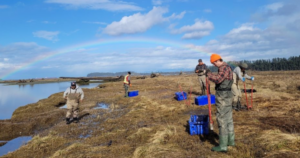
Nature Trust BC and Snuneymuxw First Nation staff collecting Lyngbye’s Sedge (Carex lyngbyei) for transplanting at one of our restoration sites in the Snuneymuxw River Estuary
The United Nations’ Ocean Decade
The ocean, climate change, and the resilience of coastal communities are closely intertwined. As such, the United Nations and UNESCO has declared 2021-2030 the Ocean Decade, which empowers communities, organizations, and governments to facilitate transformative ocean science solutions, connecting people and our ocean.
In 2023, the Estuary Resilience project was endorsed by the United Nations Decade of Ocean Science for Sustainable Development as an action that will help unlock ocean-based climate solutions and support coastal communities. Our project was specifically endorsed under the Cultural Heritage framework as a project that addresses several Ocean Decade challenges.
We are humbled and honoured to be endorsed, and thank all our project partners for collaborating on this incredibly impactful project.
Learn more about the Estuary Resilience Project: 
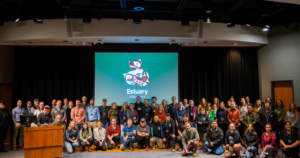
Estuary Resilience Project Partners
Strong Partnerships for Estuary Resilience
Thank you for all of our project partners and collaborators!
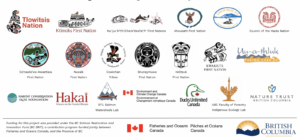
Funding for this project was provided under the BC Salmon Restoration and Innovation Fund (BCSRIF), a contribution program funded jointly between Fisheries and Oceans Canada, and the Province of BC. Learn more here.
